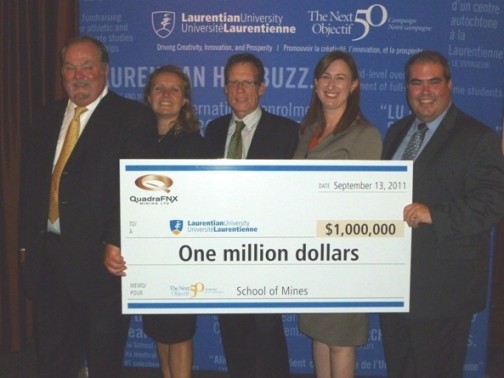This article was provided by the Ontario Mining Association (OMA), an organization that was established in 1920 to represent the mining industry of the province.
Terry MacGibbon, Chairman of Ontario Mining Association member Quadra FNX, has taken on the volunteer role as chairman of Laurentian University’s Next 50 campaign. This fundraising effort, to date, has reached $39 million of its goal of $50 million.
“I am honoured to accept this important position and to be a part of the development of a university that I believe is on the cusp of greatness,” said Mr. MacGibbon. “Laurentian’s bold plans for the future speak to its desire to set the pace for educational excellence in Canada and projects like the newly announced Laurentian School of Mines and the Laurentian School of Architecture will surely attract some of the country’s brightest, most ambitious young minds.”
Also a donation of $1 million made by Quadra FNX to Laurentian University is being designated to the Laurentian School of Mines. “Quadra FNX is excited to invest in an institution that is set in one of the world’s great mining camps and that will play a vital role in developing the qualified professionals needed to sustain and grow our industry,” said Paul Blythe, President and Chief Executive Officer of Quadra FNX. “Laurentian’s School of Mines will undoubtedly become one of Canada’s premier centres for mining education.”
























